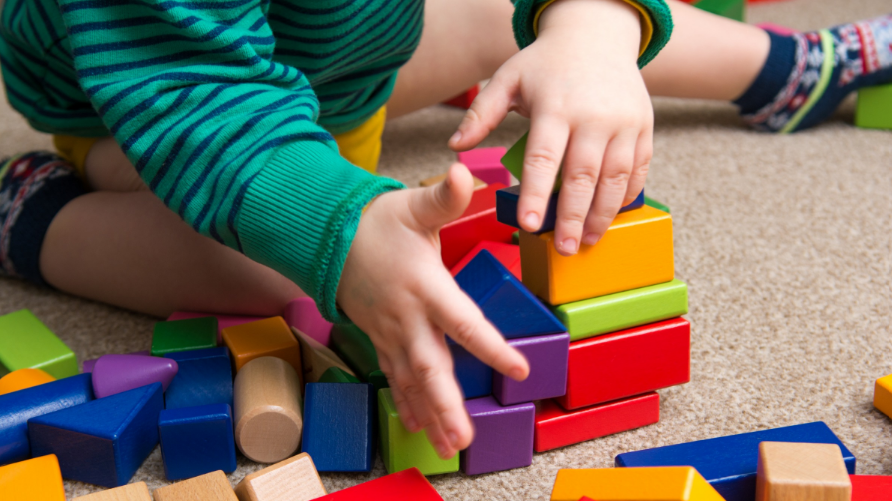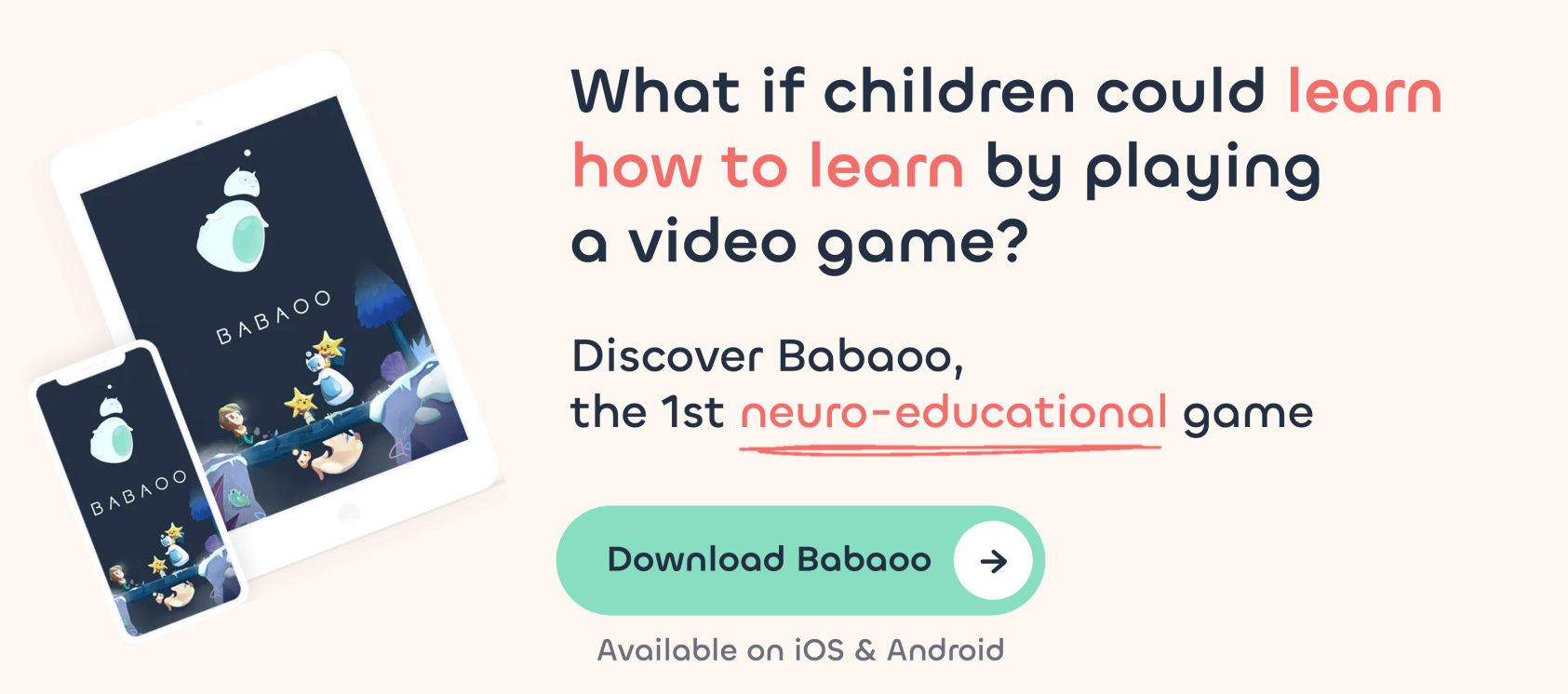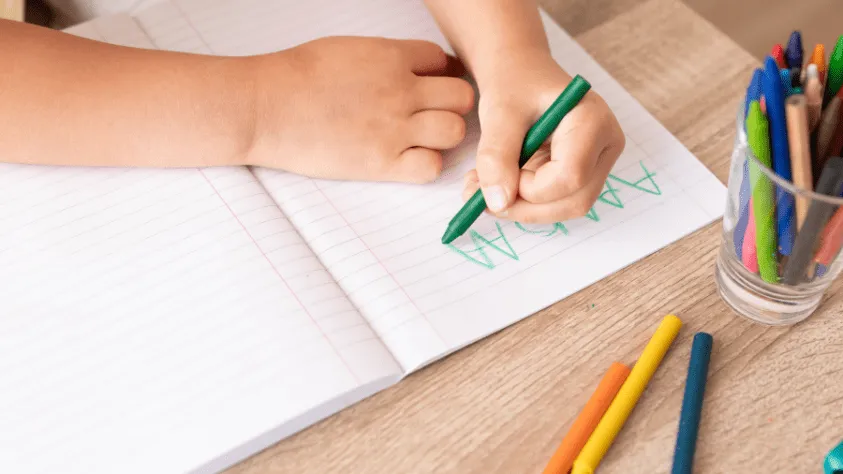
What is the role of the psychomotrician for children?

What does the profession of psychomotrician involve?
The specialist in psychomotor development
The psychomotrician is a healthcare professional who helps people of all ages, and children in particular, to improve their motor skills, coordination, balance and perceptive and relational skills. He is involved in the screening, assessment and rehabilitation of psychomotor disorders. His approach is holistic, taking into account both the bodily, cognitive and emotional aspects of each patient.
In particular, the psychomotrician can play an important role in detecting certain Dys disorders.
What disorders does a psychomotrician treat?
-
- Disorders of coordination and balance: difficulties coordinating movements of different body parts or maintaining balance.
- Motor development delays: slower development of motor skills compared with the norm, such as walking, running or using the hands.
- Fine motor disorders: difficulties performing precise, controlled movements with hands and fingers, such as writing, cutting, or manipulating small objects
- Disorders of spatial and temporal perception: difficulties understanding and managing notions of space and time, which can affect the ability to find one’s bearings and follow sequences of actions
- Dyspraxia : trouble planning and automating voluntary gestures, making certain daily activities difficult to perform.
- Body schema disorders: difficulties in perceiving and integrating the different parts of one’s body and situating them in space.
- Graphomotricity disorders: problems related to writing and drawing, such as incorrect pencil grip or poor letter formation, which are often associated with dysgraphia. Dysgraphia can sometimes coexist in children with spelling difficulties (dysorthography), but it remains important to make it clear that these are distinct disorders.
➡️ To find out more, see the article “Dyslexia, dysorthography, dysgraphia: what are the differences?”.
When to consult a child psychomotrician?
It’s a good idea to consult a psychomotrician if your child has problems with coordination, balance, fine or gross motor skills, delayed motor development, difficulties with spatial or temporal perception, or problems integrating body schema. If your child has behavioral or emotional difficulties related to motor and perceptual aspects, this professional may also be appropriate. For language disorders, specific learning problems, or broader emotional difficulties, other specialists may be more suitable.
Trust your doctor!
Interdisciplinary collaboration ensures a comprehensive approach tailored to each child’s specific needs. Trust your GP to refer your child to the right specialists.
Here are a few examples:
- Orthophonist : works on language and communication disorders.
- Psychologist: assesses and treats emotional and behavioral aspects.
- Pedopsychiatrist: diagnoses and treats psychiatric disorders.
- Ergotherapist : helps develop autonomy in activities of daily living, works on fine and global coordination.
- Physiotherapist: works on motor and physical aspects, particularly in cases of musculoskeletal disorders or functional rehabilitation.
- Orthopedist: intervenes in cases of deformities or postural disorders requiring medical devices.
- Neuropsychologist : assesses executive, cognitive and behavioral functions to diagnose neurodevelopmental disorders.
- Orthoptist: treats vision disorders that can affect learning.
Can a psychomotrician help with ADHD?
Yes, the psychomotrician can provide significant help in cases of ADHD, by assessing and re-educating the psychomotor and behavioral aspects associated with this neuroatypism. By working on motor coordination, balance, spatial and temporal perception, as well as on controlling impulsivity, the psychomotrician helps the child to better structure his or her actions and behaviors.
The psychomotrician proposes activities to regulate motor activity, enabling the child to expend his energy constructively while learning to control his movements. He uses games adapted to cognitive development, and exercises to reinforce attention. He can also be a driving force in teaching relaxation techniques and behavioral strategies to better manage impulsivity, in class as well as at home.
First session with the psychomotrician, what to expect
The aim of this meeting is to establish a relationship of trust, gather essential information about your child’s development and answer any questions you may have. The psychomotrician uses this session to observe your child and discuss his or her first impressions in a calm, respectful environment.
During this first session, the psychomotrician will take time to introduce himself and explain his role and the nature of his work. He or she is there to help your child feel good about his or her body and interactions with others.
His role is to make sure that you and your child are comfortable from the outset. His or her priority will be to establish a climate of trust and security.
1 – Anamnesis (information gathering)
You’ll have the opportunity to discuss your child’s medical and developmental history, if necessary recalling the pregnancy, birth and first months of life, as well as the stages of motor, language and social development. This will also be an opportunity to discuss any medical or family history.
The psychomotrician will be interested in your child’s life habits, such as eating, sleeping, daily activities, hobbies and social interactions. All this information will help him/her to better understand your child.
During this exchange, you’ll be able to explain the reasons for your consultation, your specific concerns and the behaviors or difficulties you’ve observed in your child. This is a key moment for sharing your concerns.
2 – Initial observation of the child
During this first session, the psychomotrician will observe how your child behaves in this new environment. How he interacts with you and with himself, and how he explores the consultation space.
To better understand your child’s motor and relational skills, the psychomotrician will suggest simple games or activities. These activities are designed to be playful and informal, so that your child feels at ease.
3 – Exchanging first impressions
After these initial observations, the psychomotrician will share his or her first impressions with you. This will enable you to take stock of what has been observed. He or she will take the time to answer any questions or concerns you may have. Feel free to express anything you feel is important. That’s what this listening time is for.
4 – Identifying goals and planning sessions
The psychomotrician will then explain the next steps and, if necessary, suggest a psychomotor assessment. He will detail the types of activities and tests that will be used, and how this information will be used to draw up a suitable treatment plan.
The objectives of the psychomotor assessment will be specified. The aim will be to identify and target specific needs requiring intervention.
Together, you’ll discuss the organization of future sessions, their frequency and duration.
Babaoo’Tips
- 💬 Be open and honest: provide as much information as possible, even that which may seem insignificant. Every detail counts in understanding your child.
- ❓ Please ask questions: don’t hesitate to ask questions about the process, methods and objectives of the sessions. The psychomotrician is there to enlighten and reassure you.
- 📝 Prepare yourself: remember to write down the important points you want to discuss in advance. This will help you make sure you don’t forget anything during the interview.
Child psychomotor assessment
What is a psychomotor assessment?
A psychomotor assessment is a complete evaluation of a person’s psychomotor abilities, carried out by a psychomotrician. This assessment is essential for identifying difficulties or delays in a child’s development, linked to coordination, motor skills, balance, as well as affective and cognitive aspects.
The child’s psychomotor assessment pursues 3 objectives:
- Global assessment: evaluate the child’s overall psychomotor development.
- Identification of difficulties: detect specific disorders or delays in various psychomotor skills.
- Therapeutic orientation: propose appropriate interventions to improve skills and autonomy.
How is a child’s psychomotor assessment carried out?
Psychomotor tests
Based on observations and anamnesis, several types of tests can be set up as part of a psychomotor assessment, in order to take stock of the child’s skills and difficulties in different areas:
- Motor coordination: exercises and games are used to assess the child’s overall and fine coordination. Activities include gross motor skills (jumping, running, sitting up, etc.) and fine motor skills (handling small objects, drawing, etc.).
- Balance and posture: static and dynamic balance is assessed through specific exercises (balancing on one leg, walking in a straight line…).
- Laterality: the psychomotrician examines whether the child has a marked preference for one side of the body (hand, foot, eye) and whether this laterality is well established.
- Spatial and temporal perception: the assessment includes exercises to test perception of space (orientation, spatial location) and time (sequencing of actions).
- Body schema: children can be asked to identify and name their body parts, perform specific movements and reproduce postures.
- Graphomotricity: drawing and writing activities are particularly useful for assessing hand-eye coordination, gesture precision, pencil pressure, and tracing quality. 🖋️
The psychomotrician then analyzes the results of the tests and observations to identify the child’s strengths and difficulties in the various psychomotor areas. A summary of observations and results is drawn up to determine the child’s psychomotor profile.
Restitution and follow-up plan
The psychomotrician writes a detailed report of the assessment, including recommendations for parents and possibly teachers. If necessary, a follow-up or re-education plan is proposed, with specific objectives and therapeutic activities adapted to the child’s needs.
The psychomotrician may work in collaboration with other professionals (speech therapists, psychologists, occupational therapists, teachers) for comprehensive, coordinated care of the child. Additional assessments may then be suggested to these professionals.
Each assessment is unique and tailored to the child, taking into account his or her age, abilities, and specific needs.
What is the training of a psychomotrician?
A regulated profession
To become a psychomotrician in France, you need to undergo specific training and obtain the Diplôme d’Etat de Psychomotricien (Bac +3). Training lasts three years in a training institute approved by the French Ministry of Health.
Here are a few examples of establishments offering this training in major cities:
- Sorbonne University in Paris.
- L’Institut de Formation en Psychomotricité (ISRP) in Marseille.
- L’Institut des Sciences et Techniques de Réadaptation (ISTR) in Lyon.
What are the other conditions required to practice?
Code of ethics
Psychomotricians must abide by a code of ethics that defines their ethical rules and professional obligations, such as respect for professional secrecy and the need to regularly update their skills.
Registration in the ADELI directory
To practise, psychomotricians must be registered in the ADELI (Automatisation DEs LIstes) directory, which lists healthcare professionals. This registration is proof that their qualifications are recognized by the health authorities.
How can I find out if my practitioner is listed in the ADELI directory?
You can consult the Health Directory, which lists all registered professionals. The site’s search engine lets you type in your practitioner’s name or address directly to check his or her status.
The ADELI number also appears on the psychomotrician’s health professional card. This is a 9-digit code.
Useful resources
- The directory of liberal psychomotricians in France, maintained by the Syndicat National d’Union des Psychomotriciens. Click on the map to search by region and department. This site enables you to identify at a glance a list of practitioners practicing in your département. However, it may contain a few errors (as the activity of some practitioners may change), so it’s always important to check that the information is up to date by contacting the professionals directly.
- The directory of liberal psychomotricians in France, updated by AFPL, Association Française des Psychomotriciens Libéraux. This is an alternative source for discovering other practitioners.
- L’Annuaire Santé, to check your practitioner’s current status.
- The Belgian directory maintained by the Union Professionnelle Belge des Psychomotriciens Francophones.
The Babaoo recap
- The psychomotrician plays an essential role in children’s development by improving coordination, balance and motor skills. As a specialist in psychomotor development, the psychomotor therapist can detect, assess and rehabilitate various disorders such as dyspraxia, delayed motor development, and difficulties with spatial and temporal perception.
- The first session aims to establish a relationship of trust and gather essential information for an adapted treatment plan. A psychomotor assessment is then carried out.
- The psychomotrician collaborates with other health professionals to ensure comprehensive care, addressing the child’s specific needs. 🌟
- Careful monitoring and adaptations at home and at school can greatly help children overcome their psychomotor challenges.
Find out more about remediation professions:
You may also be interested in these articles



